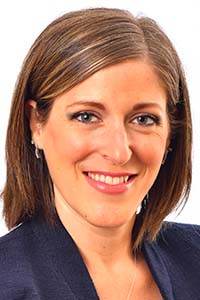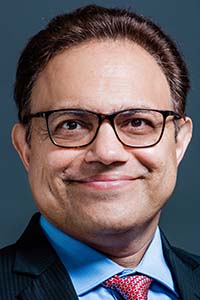
Going into the pandemic, the number of students enrolled in event management was declining at the Boston University School of Hospitality Administration, the school’s dean said.
For some students enrolled in event management degree programs in 2020, the temporary but sudden collapse of live events early in the pandemic carried a double whammy. Many, if not most, programs have internship requirements — for example, the program at the Rosen College of Hospitality Management at the University of Central Florida (UCF) in Orlando requires that students complete three internships before graduation, said Michelle Holm, a lecturer in the program and the coordinator of the event and entertainment management programs in the college’s Department of Tourism, Events, and Attractions. Typically, UCF Rosen College students have jobs in addition to attending classes, Holm said, and in addition to the loss of internship opportunities, students also lost hospitality-related jobs they were working to pay their bills.

Michelle Holm
Some students pivoted to graduate school to pursue a broader general business or marketing degree to better position themselves for when the industry bounced back, said Jeeyeon Hahm, an associate professor at the UCF program. But in order to make ends meet, Holm said, students also took jobs “in sales and got into doing things that they didn’t think that they’d be doing.”
Two years later, as events have rebounded strongly in Orlando, opportunities have been coming back, Hahm said. A full picture of enrollment patterns at the college is still emerging, “but I’m not under the impression that students have necessarily left the degree programs within the college,” Holm said. “I think students are continuing on with their education as they originally planned, but the students who were [particularly] affected [by the pandemic] are looking at it a lot differently than they used to.”
Students in event management programs, including at UCF Rosen College, learned to adapt and change quickly by hosting virtual events and hybrid events with the help of advanced technology, Hahm said. But the scope of what programs are offering students also is evolving. At the Boston University School of Hospitality Administration (SHA), “we are expanding the concept of what we think of as hospitality,” said Arun Upneja, the school’s dean. “We are including senior living, sports, and entertainment as belonging to all of this — pretty much essentially any industry where human interactions are very key to the business models.” Those fields are attracting student interest, particularly sports and entertainment, Holm said. “Everybody doesn’t want to do business events. There’s a trend toward concerts, music festivals, and larger-scale type events like that,” she said.
Employment of meeting, convention, and event planners is projected to grow 18 percent from 2020 to 2030, much faster than the average for all occupations. About 16,400 openings for meeting, convention, and event planners are projected each year, on average, over the decade. Many of those openings are expected to result from the need to replace workers who transfer to different occupations or exit the labor force, such as to retire.
Source: U.S. Bureau of Labor Statistics, April 2022
Even as the idea of what it means to have a career in event management is becoming broader, the number of students in the talent pipeline has been narrowing. Going into the pandemic, the number of students enrolled in hospitality programs in general, but also in event management in particular, was declining, Upneja said. The news that the events and hospitality industries were “harshly hit by the pandemic, much more than most other sectors” wasn’t lost on the high-school students who have been considering their career options over the last couple of years, he added. “We are seeing no decrease in the decline” in enrollment, he said.
In the bigger picture, enrollment numbers in hospitality and event management programs are part of a much larger trend affecting overall undergraduate student enrollment, which declined by 9.4 percent during the pandemic, the biggest drop in more than half a century, according to the National Student Clearinghouse Research Center.

Arun Upneja
In the events and hospitality world, “not only were we already short-staffed, but now we’ve lost so many people,” Upneja said. “So many of those people found outlets in other related industries. Our workforces are very personable — they like interacting with people. So banks and financial services and other retail … everyone just grabbed so much of this talent. We need to really expand our pool of people.”
One of the places where Upneja and others see great potential is in expanding the diversity in the hospitality and events industry. An overall lack of diversity in the industry extends even to the faculty that are in the hospitality programs, he said. “Probably less than 10 percent of faculty nationwide are belonging to underrepresented minorities.”
On May 31, SHA partnered with the Greater Boston Convention & Visitors Bureau (GBCVB) to host a town hall and career fair at Boston University, as a precursor to an apprenticeship program that will be created jointly by the GBCVB and Tourism Diversity Matters (TDM). The emphasis will be on high-quality internships that can lead to upper management and executive-level positions for diverse candidates, Upneja said.
“There’s less talent coming in,” he said. “So, this offers great opportunities for people to come in and grow and grow fast. In some other mature industries, you kind of grow slowly, but here you can move up very fast.”
Barbara Palmer is deputy editor of Convene.
Hire Education — Read the Stories

Convene’s August CMP Series cover package examines the talent challenge the events industry is facing. Below are links to all the stories in the package.
- Is the Talent Challenge Choking the Business Events Industry’s Recovery?
- How One Association is Restaffing its Events Team
- It’s Time to ‘Think About Talent Differently’
- Stopping the ‘War on Talent’
- ‘Everybody Is Having a Difficult Time Attracting Talent’
- The New Events Staffing Landscape is ‘Unsustainable’
